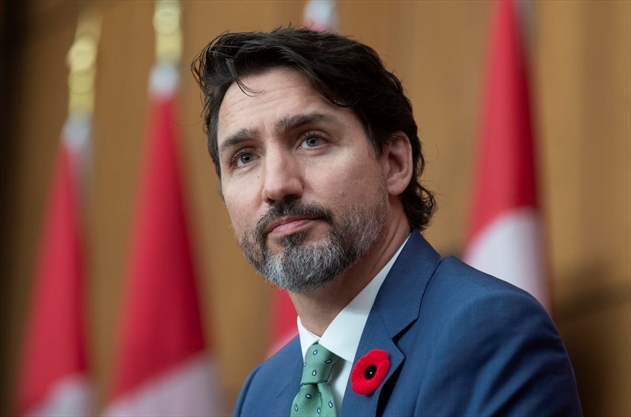The economic grind of the second wave is coming into sharp focus.
But so is the folly of a hasty reopening in the hopes of lightening the load.
On Friday, the latest job numbers from Statistics Canada showed that the rapid rebounds in the labour market over the course of the first reopening this summer have slowed remarkably.

Employment expanded by just 0.5 per cent in October, a meagre increase compared to the 2.7 per cent average monthly expansions we’ve seen since May. It’s not nothing. But it’s clear that the second wave of the virus has begun to take its toll on the recovery, and parts of the labour market have balked.
About 150,000 people retreated from their workplaces and sought shelter in their home offices again. Another 48,000 people working in accommodation and food services lost their jobs, especially in Quebec — reflecting the fact that the second wave is hitting that province harder than elsewhere, and that hotels, restaurants and bars are on the front lines of new restrictions there.
More concerning for our recovery prospects, the mass of people who have been without jobs for at least six months is climbing, spiking at record rates. Long-term unemployment rose by 35 per cent in September and 51 per cent in October. There are now — a quarter of all those who are out of a job.
That’s especially worrisome because staying out of the workforce for long periods often means that skills atrophy and prospects for finding a good job diminish, permanently damaging the ability of companies to find the workers they need to keep producing, and for workers to find the wages they need to pay the bills.
The combination of long-term corrosion with the repeated cycle of short-term restrictions pushes a full recovery further down the road.
At least this time, there isn’t a full shutdown, at least not yet. But with pressure mounting on local public health authorities and premiers alike to let businesses get back to work, there’s no guarantee we won’t be there soon.
Prime Minister Justin Trudeau had some ominous words on that front on Friday. He pointed to the cautionary tale of the United Kingdom, where political leaders gave in to the pressure to restart the economy before COVID-19 was fully under control. As a result, coronavirus cases exploded, and it’s now back in full lockdown. Its efforts to boost the economy actually did more harm, setting back its path to recovery substantially.
“We’re not going to do that,” Trudeau said.
But in some parts of the country, we may be in the midst of doing exactly that.
The number of new cases topped 1,000 in both Ontario and Quebec on Friday, a day after Premier Doug Ford rolled out a budget meant to stimulate the economy back to life. He’s also easing some restrictions starting this weekend, much to the dismay of some public health experts and authorities.
In Montreal, local authorities have pushed for fewer restrictions, but Premier François Legault has resisted.
Across the country, it’s clear that business is getting antsy, and is lobbying hard for both a better, more surgical control of contagion and a simultaneous reopening. Of course, any responsible politician would hear their cry, and the troubling labour market weighs on the minds of business and government alike.
But that combination of controlling the contagion and reopening business just doesn’t seem possible right now. Without wide distribution and easy access to rapid testing and contact tracing, brash reopening invites more COVID-19 cases, which in turn leads to another round of closures.
This destructive and often confusion-inducing tug-of-war shouldn’t have to happen.
Trudeau points to supports the federal government has recently put in place to ensure that any business hit by a localized closure will get extra rent subsidies, as well as the now-standard access to wage subsidies and business loans that are readily available to companies on the brink.
They should be able to weather more pandemic restrictions even if it’s not their first choice, the federal government believes, and their long-term prosperity depends on it.
But that message gets lost in the day-to-day fear in the bills coming due, the lack of confidence that federal and provincial support is adequate, and the deep drive to get back to work, back to business.
It looks like the federal government can afford to stifle those instincts with generous, well-timed support, according to . As long as Ottawa removes its subsidies when the pandemic winds down, the deficits it has bulked up during the crisis are big but manageable.
From day one, Trudeau and his cabinet have repeated like a mantra that control of the pandemic is a prerequisite for economic recovery. Shortcuts will backfire.
But to put make those words meaningful, authorities at all levels need to buy in to the wisdom behind them — with enough restrictions to keep the pandemic under control and enough money to keep business and labour whole.
Heather Scoffield is the Star’s Ottawa bureau chief and an economics columnist. Follow her on Twitter:
